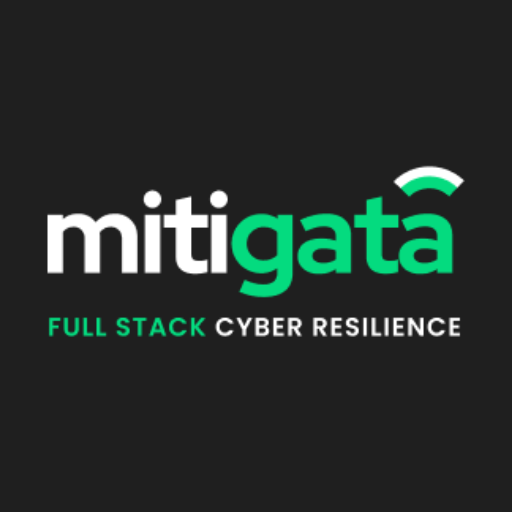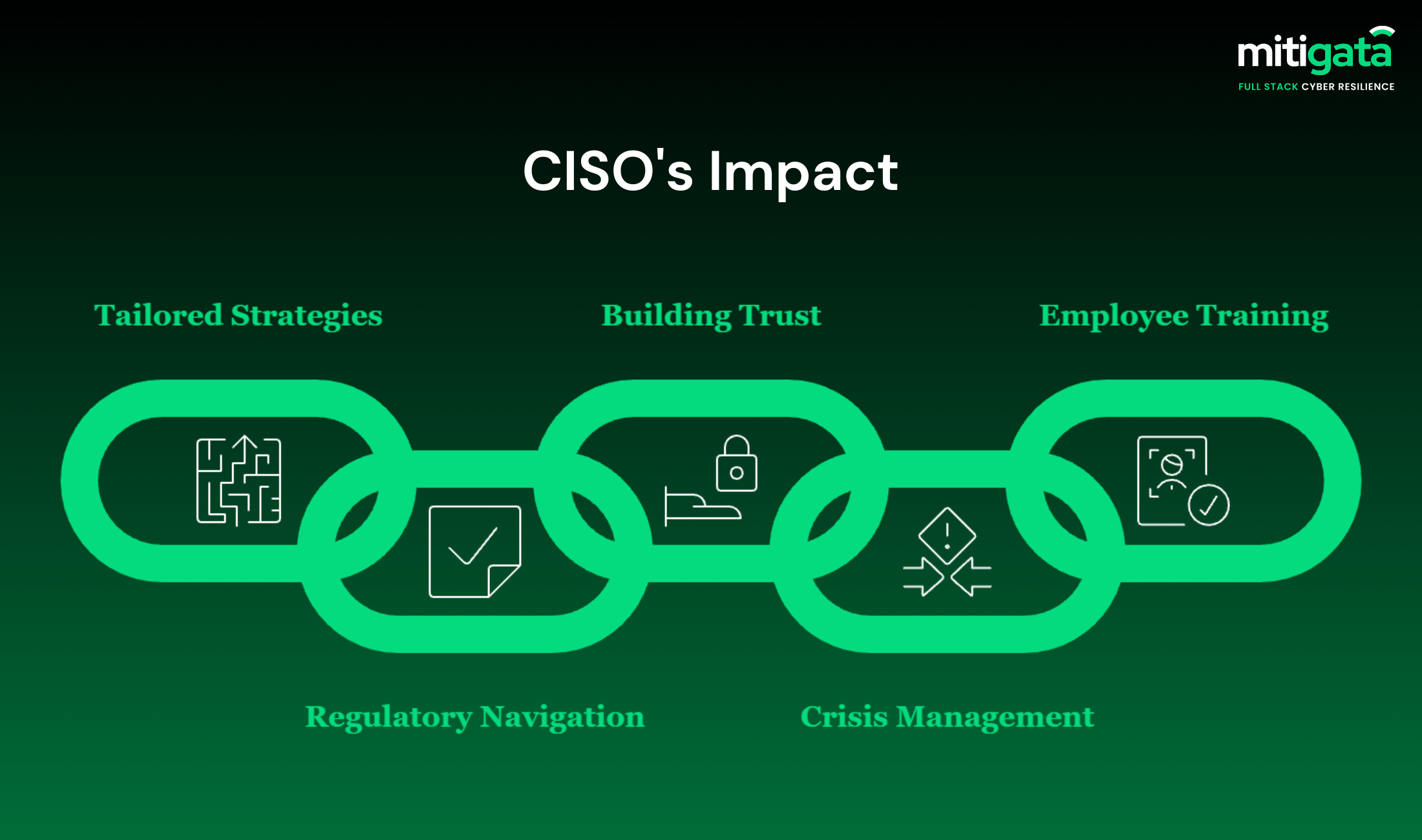In 2025, small businesses face a digital landscape that’s more treacherous than ever. Cyberattacks are no longer a “big company” problem, they’re hitting small businesses hard, with devastating consequences.
The idea of hiring a Chief Information Security Officer (CISO) might sound like overkill for a small operation, but it’s becoming a necessity. A CISO brings expertise, strategy, and peace of mind to protect your business, your customers, and your reputation.
Let’s dive into why small businesses can’t afford to skip this critical role in 2025.
Free Demo. Full Transparency. No Hidden Costs
We provide personalised MDR solutions at unbeatable rates with zero compromise on coverage.

Mitigata: India’s Only Full-Stack Cyber Resilience Company
Backed by partnerships with top global OEMs, we evaluate your risks, environment, and budget to deliver the most effective email security solutions powered by proactive threat detection, automated response workflows, and advanced AI-driven intelligence. With Mitigata, you get:
-
- Get a free demo with zero commitment
- Trusted by 800+ B2B companies across India for reliable cyber resilience
- Affordable, high-impact protection built to fit your security goals
- Round-the-clock expert support whenever you need it
- Effortless integration with your existing tools and infrastructure
- No extra fees for training—everything is included
- Security solutions tailored to your organisation’s unique risks
- Full end-to-end deployment and assistance, from setup to optimisation
The Rising Tide of Cyber Threats
Small businesses are prime targets for cybercriminals. According to the Verizon 2023 Data Breach Investigations Report, 43% of cyberattacks target small businesses, yet many lack the resources to defend themselves effectively.
Hackers know this and exploit it. Phishing scams, ransomware, and data breaches are skyrocketing, with the average cost of a data breach for small businesses reaching $3.31 million in 2023, per IBM’s Cost of a Data Breach Report.
The stakes are higher in 2025. With AI-driven attacks becoming more sophisticated, cybercriminals can craft hyper-realistic phishing emails or automate large-scale attacks with ease.
Small businesses, often running on tight budgets and outdated systems, are low-hanging fruit. A single breach can wipe out years of hard work, erode customer trust, and even lead to legal penalties under regulations like GDPR or CCPA.
Why a CISO Makes a Difference
A CISO is more than just a tech expert; they’re a strategic leader who aligns cybersecurity with your business goals. Here’s why small businesses need one in 2025.

- Tailored Cybersecurity Strategies
Small businesses don’t have the luxury of throwing money at every security tool on the market. A CISO assesses your unique risks and designs a cost-effective plan.
Whether it’s securing customer data, protecting your e-commerce platform, or training employees to spot phishing emails, a CISO prioritises what matters most.
They ensure you’re not wasting resources on generic solutions that don’t fit your needs. - Navigating a Complex Regulatory Landscape
Data privacy laws are tightening globally. In 2025, small businesses handling customer data must comply with regulations like the EU’s GDPR, California’s CCPA, or new laws emerging in other regions.
Non-compliance can lead to hefty fines GDPR penalties can reach €20 million or 4% of annual revenue, whichever is higher. A CISO keeps your business compliant, helping you avoid legal pitfalls while building trust with customers. - Building Customer Trust
Customers in 2025 are savvier than ever. They want to know their data is safe before they shop with you. A CISO ensures robust security practices, like encryption and secure payment systems, are in place.
They can also help you communicate your commitment to security, giving you a competitive edge. As Forbes noted in a 2023 article on cybersecurity trends, businesses that prioritise security are more likely to win customer loyalty in a privacy-conscious world. - Crisis Management and Recovery
When a cyberattack hits, every second counts. A CISO is your crisis quarterback, coordinating a rapid response to contain the damage, recover systems, and communicate with stakeholders.
Without a CISO, small businesses often scramble, leading to longer downtimes and higher costs. The Ponemon Institute found that businesses with a dedicated cybersecurity leader recover from breaches 30% faster than those without. - Employee Training and Culture
Your employees are your first line of defense and often your weakest link. A CISO implements ongoing training to teach staff how to recognize threats, like suspicious emails or unsafe websites.
They foster a security-first culture, embedding best practices into daily operations. This is critical in 2025, as human error remains a leading cause of breaches, according to the Verizon report
Build Cyber Resilience Without Paying Extra for Security Tools
Get enterprise-grade protection and 24/7 response capability at up to 30% lower cost than other vendors in the market.

Overcoming the “We Can’t Afford It” Mindset
I get it small businesses operate on razor-thin margins. Hiring a full-time CISO might seem like a luxury.
But the cost of *not* having one is far higher. A single ransomware attack could cripple your business, and the reputational damage might be irreparable.
Plus, you don’t need a full-time CISO on payroll. Many small businesses in 2025 are turning to fractional or virtual CISOs consultants who provide expert guidance on a part-time or project basis.
Companies like CyberSec Solutions and vCISO Services offer affordable options tailored to small businesses, making this role accessible without breaking the bank.
Real-World Impact: A Case Study
Consider the story of a small online retailer I came across in a 2024 cybersecurity webinar hosted by the Small Business Administration (SBA).
This retailer, with just 15 employees, suffered a ransomware attack that locked their customer database and halted operations for a week. Without a CISO, they paid a $50,000 ransom, only to face additional costs for system repairs and lost sales.
The total damage? Over $200,000. After the incident, they hired a fractional CISO who implemented employee training, multi-factor authentication, and regular backups.
A year later, they thwarted a similar attack with zero downtime. The CISO’s expertise saved them from a repeat disaster.
The Bigger Picture
In 2025, cybersecurity isn’t just about protecting data, it’s about protecting your business’s future.
A CISO brings clarity to a chaotic digital world, helping you stay ahead of threats, comply with regulations, and build customer trust.
Small businesses are the backbone of the economy, but they’re also the most vulnerable to cybercrime. By bringing a CISO on board—whether full-time, part-time, or virtual you’re taking a proactive step to safeguard your livelihood.
As cyber threats evolve, so must your defences. In 2025, a CISO isn’t a luxury; it’s a necessity. Learn More.

